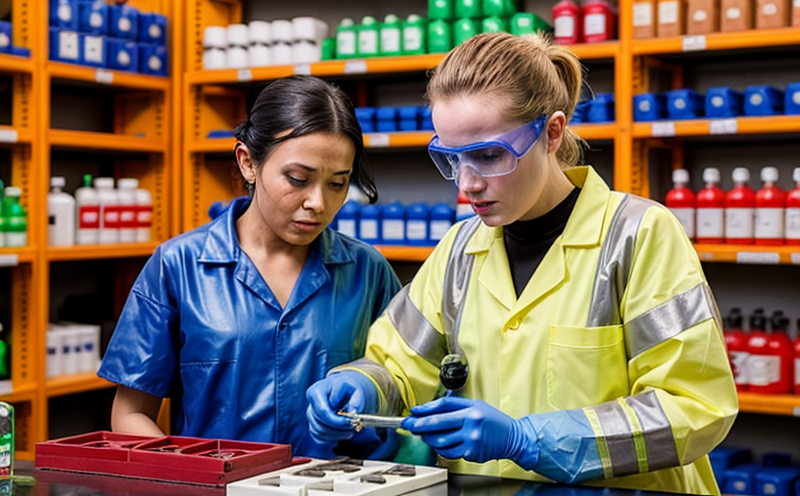EN 1122 Cadmium Content Testing in Imported Goods
Compliance with international standards is crucial for importers and exporters to ensure they meet regulatory requirements. One such standard, EN 1122, addresses the cadmium content testing of certain imported goods. This service focuses on ensuring that materials comply with this regulation by providing accurate and reliable testing.
The importance of this testing cannot be overstated due to its role in protecting public health and environmental safety. Cadmium is a toxic heavy metal that can pose significant risks when present in high concentrations within consumer goods. The European Union’s Directive 2015/863 (RoHS) has stringent rules about the limit on cadmium content, which is enforced by EN 1122.
This service covers a wide range of imported items including electronic devices, toys, jewelry, and other consumer goods. The testing process involves rigorous procedures to ensure that all samples meet the specified limits for cadmium content as outlined in EN 1122. Compliance with these standards not only ensures product safety but also protects against potential legal penalties.
The methodology used in this service adheres strictly to European regulations, ensuring accurate and consistent results. Samples are prepared according to strict protocols before undergoing analysis using advanced analytical equipment such as Inductively Coupled Plasma Mass Spectrometry (ICP-MS). This ensures precise measurement of cadmium levels down to the parts per million level.
Our experienced team follows all necessary steps from sample receipt through preparation, analysis, and reporting. We use state-of-the-art facilities equipped with highly sensitive instruments capable of detecting even minute traces of cadmium. Our reports provide detailed information about each test conducted along with comparative data against relevant standards like EN 1122.
| Sample Type | Tested Parameters | Compliance Standard | Limit Value (mg/kg) |
|---|---|---|---|
| Electronics | Cadmium Content | EN 1122 | 100 mg/kg max. |
| Toys & Children's Products | Total Heavy Metals | RoHS Directive | 35 mg/kg max. |
Scope and Methodology
The scope of our EN 1122 Cadmium Content Testing service is broad, covering various types of imported goods that may contain cadmium. These include electronic devices such as laptops, smartphones, televisions; toys designed for children under five years old; jewelry items meant for regular wear; and any other products identified by regulatory bodies as potentially containing hazardous levels of cadmium.
The testing process begins with careful receipt and documentation of incoming samples. Each sample undergoes thorough preparation, which might involve mechanical cleaning or chemical treatment depending on the nature of the material being tested. Once prepared, the sample is analyzed using advanced analytical techniques such as Inductively Coupled Plasma Mass Spectrometry (ICP-MS). This method allows for highly precise measurement of cadmium content down to parts per million levels.
After completing all analyses, we compile detailed reports that include raw data along with interpretations based on relevant standards like EN 1122. These comprehensive reports serve multiple purposes including internal quality control within manufacturing facilities, informing decision-making processes during procurement activities, supporting legal defenses against claims of non-compliance.
Our team ensures adherence to all necessary guidelines throughout the entire testing process from sample handling through final reporting. This commitment guarantees consistent and accurate results that can be trusted by our clients across different sectors including government agencies responsible for trade facilitation.
Industry Applications
- Government Agencies: Ensuring imported goods comply with local regulations regarding cadmium content.
- Retailers: Verifying that products sold within their stores meet safety standards set forth by international agreements like RoHS Directive and EN 1122.
- Manufacturers: Confirming the quality of raw materials used in production processes before incorporating them into finished goods.
Use Cases and Application Examples
Cadmium content testing plays a vital role in ensuring compliance with international standards such as EN 1122. Here are some real-world scenarios where this service is particularly relevant:
- An electronics manufacturer wants to verify that their latest laptop model meets the cadmium content limits specified by EN 1122 before launching it into European markets.
- A toy company needs assurance that its new line of children's jewelry adheres to both national and international safety requirements regarding heavy metals like cadmium.





